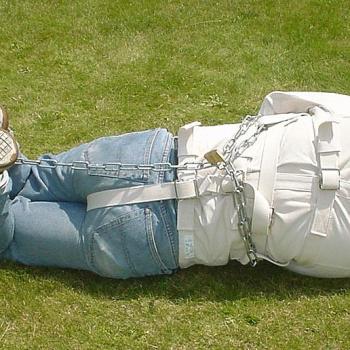Since white wealth is greater, property taxes yield more resources in neighborhoods with more whites. As whites move away from blacks in local neighborhoods (what some call white flight), resource quality shifts such that housing values begin to decline, school quality declines, and the perception of crime increases. When these shifts occur, children grow up in fairly segregated schools, and not surprisingly, whites report few to no friendships with members of other racial groups. An absence of regular contact with different-race peers invites stereotyping that goes unchecked. This in turn forms a cognitive foundation from which decisions are made when those who grew up with some privilege wind up in positions of power, such as the employer of a business. Implicit biases developed from stereotypes generated in contexts of systemic segregation perpetuate a cycle of racial inequality that continues to this day.
Can the church, whether clergy or lay, do anything in particular given these circumstances? The optimist in me says "yes," but with no real solutions. The pessimist in me says "no" because while our congregations might be growing more diverse, it is apparently not changing the structural reality of racial inequality in America. If structural and systemic racial inequalities persist while more Christians are worshipping interracially, I suggest that Christians opt not to face these social dissimilarities and put on a happy face in that one hour a week in which they are side-by-side with believers of different hues. Like other Americans, they dislike inequality but participate (often unknowingly) in systems that perpetuate the inequality that they disapprove of.
Rather than resorting to "racial reconciliation," which often becomes a symbolic gesture of repentance, churches could be more deliberate in raising awareness of systemic injustices (going beyond "let's make friends with someone of a different race") and work alongside organizations and movements with effective and reasonable agendas to combat these injustices. Perhaps they can inspire the next generation in their congregations to pursue careers and professions that focus on addressing these inequalities within our major social structures and institutions through effective policies and practices. Perhaps Christian universities and colleges could develop curricula that demand moral and ethical engagement with their course of study, whether it be computer science, business, pre-law, or pre-medicine. These combined efforts might allow for a generation to form a network of committed Christian professionals to address the persistence of racial inequality.
In fact churches could start now with a concrete problem. Last year, the Civil Rights Act of 1965 faced an important dismantling of one of its most important provisions that demanded extra scrutiny toward those communities and states that have a history of racial discrimination. Voter identification requirements are going to prevent hundreds of thousands of vulnerable racial minorities in the next elections. Numerous studies show that voter fraud (from which many of the arguments are made for promoting stricter ID requirements) is a fairly rare occurrence, but given that racial minorities disproportionally do not have the kind of photo ID that these new laws require (nor do they have the time to procure one without jeopardizing their job or their limited time with their families), these new laws serve to suppress minority voting in much the same way as literacy and political knowledge tests served to suppress voting opportunities for blacks in the South. Do our churches have the will and the creativity to intervene here?




